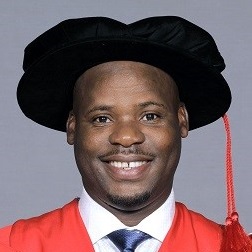Bio
Dr. Edmore Chitukutuku is currently a sessional lecturer in the Anthropology department at University of Witwatersrand (Wits) in South Africa. He holds a PhD in Anthropology from University of Witwatersrand (2017), MA in Anthropology from University of Witwatersrand (2013), BA Honors from University of Witwatersrand (2011), and a BSc degree in Social Sciences from Great Zimbabwe University (2007), where he also taught Social Anthropology and Sociology as an Assistant Lecturer (2010). His PhD thesis was titled Rebuilding Liberation War Militia Bases: Reproducing memories of political violence in the post-2000 crisis in Zimbabwe. He also held teaching positions as a sessional lecturer and tutor in the Department of Anthropology at Wits where he taught a course on the Anthropology of Violence (2017), and the International Human Rights Exchange Programme (IHRE) at University of Witwatersrand (2012). His awards and honors include the Next Generation Social Sciences in Africa Proposal Development Fellowship (2013-2014) and Dissertation Fellowship (2015-16) from the Social Science Research Council; the Wadsworth International Fellowship from the Wenner-Gren Foundation (2013-17); the Wits Postgraduate Merit Award 2011 and 2012; the Justice Lucas Award for the best Honors research report in Anthropology at Wits (2011); and the Vice Chancellor’s Book Prizes for academic excellence at the Great Zimbabwe University (2008). He is a life member of the Golden Key International Honor Society. His research interests are on peace and conflict, focusing on military and state-sponsored violence, youth, and economic anthropology.
Dr. Chitukutuku recently published “Rebuilding the Liberation War Base: Materiality and landscapes of violence in Northern Zimbabwe” in Journal of East African Studies (2017).

